Keynotes
| Bruno Meyer, ConsultBKM | What IEEE is Doing to Support Climate Change Technologies |
| Davis Bookhart, Northeastern University | Focus on the Future: Identifying Pathways for Change |
| Thomas Brown, University of Rome Tor Vergata | Photovoltaics for Indoor Energy Harvesting |
| Jeffrey Allen Brown, Stanford University | How Universities Can Drive GHG-R Impact with Speed and Scale |
| S Varunkumar, IIT Madras | Biomass – A Bit of Science, Technology and Policy |
| Ah-Hyung “Alissa” Park, UCLA | Creating a New Circular Carbon Economy via Carbon Capture, Utilization and Storage |
| Roberto La Rosa, STMicroelectronics | Strategies, Techniques and System for Powering Low-maintenance and Maintenance-free Wireless Sensor Nodes |
| Marios Sophocleus, TerraTeq Innovation | In-situ Soil Quality Monitoring Systems |
| Luisa Petti, University of Bolzano | Beyond Conventional Electronics: Smart Sensing for a Sustainable Future |
| Ronnie Siegel, Swire Siegel | Cross-disciplinary Collaboration Using Nature-based Solutions to Address Climate Change |
| Sydney Chamberlin, The Nature Conservancy (TNC) | Cross-disciplinary Collaboration Using Nature-based Solutions to Address Climate Change |
| Karen McCabe, IEEE | Moderator: IEEE@COP 2024 |
| Saifur Rahman, Virginia Tech Advanced Research Institute | Panelist: IEEE@COP 2024 |
| Wei-Jen Lee, University of Texas at Arlington | Panelist: IEEE@COP 2024 |
| Sifa Kinoti, Nairobi County, Kenya | Panelist: IEEE@COP 2024 |
| Teppo Rantanen, City of Tampere, Competitiveness and Innovation | Building Sustainable Citiverse with AI, Immersive Tech, and Data |
| Babu Chalamala, Sandia National Laboratories | Energy Storage for Grid Modernization and Deeper Decarbonization |
| Ashiq Ahamed, Pragmatic Semiconductor Ltd., UK. | FlexICs – A Low Carbon Tech Enabling a Low Carbon Economy |
| Ashwin Bharadwaj, Dow Industrial Solutions | Developing Safer Materials Using Dow’s Smart Search, Powered by CAS |
| Maria Smolander, VTT, Technical Research Centre of Finland | Sustainability of Flexible Electronics |
| Nicholas A. Ashford, MIT | Climate Change Technologies: Challenges and Opportunities |
| Colin Fitzpatrick, University of Limerick | Sustainable Electronics Will Require an Integration of Both Business Models and Technology Enablers |
 Bruno Meyer has over 38 years’ experience in industry in the field of energy.
Bruno Meyer has over 38 years’ experience in industry in the field of energy.
He joined EDF (Electricité de France) in 1985 where he held several senior management positions during his career. Amongst others, he was VP for R&D Transmission & Distribution for EDF after being Director of R&D on Power Systems and Electrical Equipment.
In 2009 he joined at Transmission Operator, RTE, as Senior Executive.
From 2011 to 2016 he was CEO of ARTERIA, RTE subsidiary in telecommunications.
Recognized as an international expert, his fields of expertise include electricity economics and regulation, power system dynamics and planning and power grids electrical equipment.
He has published over 80 papers or conference papers in the field of energy, including a book on Power Systems simulation.
Meyer has a Ph.D, from Edinburgh University, an M.Sc. from Sao Paulo University and a B.Sc. from Unicamp (Brazi).
He was elevated to the grade of IEEE Fellow in 2008.
He was 2022 IEEE Vice President Technical Activities (TAB). He was member of the Board of Directors of the IEEE in 2018, 2019 and 2022. At IEEE he launched a program on Climate Change.
Since 2021, Bruno Meyer is Secretary General of GO15, a global association of Very Large Power Grid Operators (www.go15.org).
He is president of consulting firm ConsultBKM (www.consultbkm.fr)
Talk Title: What IEEE Is Doing to Support Climate Change Technologies
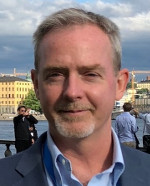 Davis Bookhart joined Northeastern University in March 2024 to help develop strategies and new programs to strengthen the university’s capacity in sustainability-related research and education. Bookhart arrived after serving as the inaugural director of the Sustainability/Net-Zero Office at the Hong Kong University of Science and Technology, responsible for implementing the university’s sustainability master plan across operations, research, and academics. Over a decade the Office grew to house the Life-Cycle Lab and the Sustainable Smart Campus as a Living Lab initiative—supporting campus projects that demonstrate smart approaches to solve sustainability challenges—as well as an award from the Hong Kong Jockey Club Charitable Trust to support sustainability practices across all eight universities within the HK Sustainable Campus Consortium.
Davis Bookhart joined Northeastern University in March 2024 to help develop strategies and new programs to strengthen the university’s capacity in sustainability-related research and education. Bookhart arrived after serving as the inaugural director of the Sustainability/Net-Zero Office at the Hong Kong University of Science and Technology, responsible for implementing the university’s sustainability master plan across operations, research, and academics. Over a decade the Office grew to house the Life-Cycle Lab and the Sustainable Smart Campus as a Living Lab initiative—supporting campus projects that demonstrate smart approaches to solve sustainability challenges—as well as an award from the Hong Kong Jockey Club Charitable Trust to support sustainability practices across all eight universities within the HK Sustainable Campus Consortium.
Talk Title: Focus on the Future: Identifying Pathways for Change
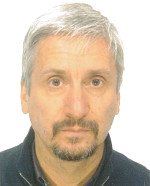 Thomas M. Brown investigated polymer OLEDs for his PhD at the Cavendish Laboratory, University of Cambridge. From 2001–2005 he developed OTFTs and E-Paper as Senior Engineer with Plastic Logic Ltd. In 2005 he was recipient of a ‘‘Re-entry’’ Fellowship awarded by the Italian Ministry of University and Research and is Associate Professor at Tor Vergata University of Rome. Founder (2006) and Director (2021-2023) of the Centre for Hybrid and Organic Solar Energy (CHOSE), and Associate Editor of Solar Energy, his current research focuses on perovskite solar cells for light harvesting indoors, on flexible substrates, and on bio-hybrid devices.
Thomas M. Brown investigated polymer OLEDs for his PhD at the Cavendish Laboratory, University of Cambridge. From 2001–2005 he developed OTFTs and E-Paper as Senior Engineer with Plastic Logic Ltd. In 2005 he was recipient of a ‘‘Re-entry’’ Fellowship awarded by the Italian Ministry of University and Research and is Associate Professor at Tor Vergata University of Rome. Founder (2006) and Director (2021-2023) of the Centre for Hybrid and Organic Solar Energy (CHOSE), and Associate Editor of Solar Energy, his current research focuses on perovskite solar cells for light harvesting indoors, on flexible substrates, and on bio-hybrid devices.
Talk Title: Photovoltaics for Indoor Energy Harvesting
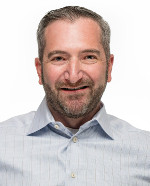 Jeff Brown has extensive experience bringing new technologies to market and is a pioneer in the field of renewable chemicals. Prior to becoming Managing Director at Stanford’s Sustainability Accelerator he was founder and CEO of Novvi, he was a Vice President at Amyris developing new products from synthetic biology. He founded Yutomi, a company commercializing environmentally friendly lubricants and has many years of experience leading petroleum research programs. Jeff has worked in the solar industry as Director of Engineering at XeroCoat. Prior to XeroCoat, Jeff was Manager of Business Development and Program Manager at Symyx Technologies executing high throughput materials discovery programs and building new business opportunities. Jeff served as Director of Engineering at Angstron Systems, a developer of atomic layer deposition (ALD) technology for the semiconductor industry. He has worked at Applied Materials and Motorola as an engineer developing new products. Jeff has many patents and publications to his name. Jeff holds an MS in Mechanical Engineering from Stanford University and a BS in Mechanical Engineering from the University of Michigan.
Jeff Brown has extensive experience bringing new technologies to market and is a pioneer in the field of renewable chemicals. Prior to becoming Managing Director at Stanford’s Sustainability Accelerator he was founder and CEO of Novvi, he was a Vice President at Amyris developing new products from synthetic biology. He founded Yutomi, a company commercializing environmentally friendly lubricants and has many years of experience leading petroleum research programs. Jeff has worked in the solar industry as Director of Engineering at XeroCoat. Prior to XeroCoat, Jeff was Manager of Business Development and Program Manager at Symyx Technologies executing high throughput materials discovery programs and building new business opportunities. Jeff served as Director of Engineering at Angstron Systems, a developer of atomic layer deposition (ALD) technology for the semiconductor industry. He has worked at Applied Materials and Motorola as an engineer developing new products. Jeff has many patents and publications to his name. Jeff holds an MS in Mechanical Engineering from Stanford University and a BS in Mechanical Engineering from the University of Michigan.
Talk Title: How Universities Can Drive GHG-R Impact with Speed and Scale
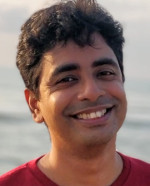 Dr. Varunkumar Sivakumar is Associate Professor in the Department of Mechanical Engineering, Indian Institute of Technology Madras (IITM), India. He obtained his Bachelor’s degree in Mechanical Engineering from the National Institute of Technology Trichy, India (2007) and PhD in Engineering (Aerospace Propulsion) from the Indian Institute of Science Bangalore, India (2012). After a brief stint as Assistant Professor at Indian Institute of Technology Ropar, he joined IITM as Assistant Professor in 2013 and was promoted to Associate Professor in 2021. His research group works on fundamental studies and technology development for value addition to agricultural residues and other biomass and coal. The susstains process for synthesis of biochar, activated-carbon and hydrogen from biomass is a noteworthy contribution from the lab. The group is also attempting commercialization of these technologies through startups.
Dr. Varunkumar Sivakumar is Associate Professor in the Department of Mechanical Engineering, Indian Institute of Technology Madras (IITM), India. He obtained his Bachelor’s degree in Mechanical Engineering from the National Institute of Technology Trichy, India (2007) and PhD in Engineering (Aerospace Propulsion) from the Indian Institute of Science Bangalore, India (2012). After a brief stint as Assistant Professor at Indian Institute of Technology Ropar, he joined IITM as Assistant Professor in 2013 and was promoted to Associate Professor in 2021. His research group works on fundamental studies and technology development for value addition to agricultural residues and other biomass and coal. The susstains process for synthesis of biochar, activated-carbon and hydrogen from biomass is a noteworthy contribution from the lab. The group is also attempting commercialization of these technologies through startups.
Talk Title: Biomass – A Bit of Science, Technology and Policy
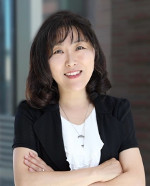 A.-H. “Alissa” Park is the Ronald and Valerie Sugar Dean of UCLA Samueli School of Engineering and a Professor of Chemical and Biomolecular Engineering at the University of California, Los Angeles. Before joining UCLA in 2023, she was the Lenfest Earth Institute Professor of Climate Change at Columbia University, where she also served as the Director of the Lenfest Center for Sustainable Energy. Her research focuses on sustainable energy and materials conversion pathways with an emphasis on integrated Carbon Capture, Utilization and Storage (CCUS) technologies. Park received a number of professional awards and honors, including the Shell Thomas Baron Award in Fluid-Particle Systems and PSRI Lectureship Award from AIChE PTF, U.S. C3E Research Award, and NSF CAREER Award. She also led key global and national discussions on CCUS, including the Mission Innovation Workshop in 2017. Park is a Fellow of AIChE, ACS, RSC and AAAS.
A.-H. “Alissa” Park is the Ronald and Valerie Sugar Dean of UCLA Samueli School of Engineering and a Professor of Chemical and Biomolecular Engineering at the University of California, Los Angeles. Before joining UCLA in 2023, she was the Lenfest Earth Institute Professor of Climate Change at Columbia University, where she also served as the Director of the Lenfest Center for Sustainable Energy. Her research focuses on sustainable energy and materials conversion pathways with an emphasis on integrated Carbon Capture, Utilization and Storage (CCUS) technologies. Park received a number of professional awards and honors, including the Shell Thomas Baron Award in Fluid-Particle Systems and PSRI Lectureship Award from AIChE PTF, U.S. C3E Research Award, and NSF CAREER Award. She also led key global and national discussions on CCUS, including the Mission Innovation Workshop in 2017. Park is a Fellow of AIChE, ACS, RSC and AAAS.
Talk Title: Creating a New Circular Carbon Economy via Carbon Capture, Utilization and Storage
 Dr. Roberto La Rosa is an esteemed electrical engineer with a Master’s degree from the University of Palermo and a Ph.D. from the Ecole Polytechnique F ́ed ́erale de Lausanne. His doctoral thesis, which merited the prestigious Thomas Gessner Award in 2023, concentrated on pioneering strategies and techniques for the autonomous operation of wireless sensor nodes via energy harvesting and wireless power transfer.
Dr. Roberto La Rosa is an esteemed electrical engineer with a Master’s degree from the University of Palermo and a Ph.D. from the Ecole Polytechnique F ́ed ́erale de Lausanne. His doctoral thesis, which merited the prestigious Thomas Gessner Award in 2023, concentrated on pioneering strategies and techniques for the autonomous operation of wireless sensor nodes via energy harvesting and wireless power transfer.
Since his tenure beginning in 1997 at STMicroelectronics, Dr. La Rosa has been instrumental in various capacities. His expertise has been integral in the design of high-frequency Phase-Locked Loops (PLLs) for clock generation and signal recovery, fiber-optic transceiver systems, power management integrated circuits, and the development of analog, digital, and mixed-signal bipolar and CMOS circuits. His proficiency in IC mixed-signal design and ultra-low power applications has been pivotal in advancing these technological areas.
Currently, as a Research Senior Staff Member at STMicroelectronics Catania, Dr. La Rosa’s re-search is focused on Ultra-Low Power applications, Wireless Power Transfer, Energy Harvesting, and high-frequency power conversion. He has authored several influential papers and holds multiple patents in these fields, underscoring his leadership in energy autonomy for wireless sensor networks.
In addition to his research activities, Dr. La Rosa is an Associate Editor of the IEEE Transactions on Agrifood Electronics, where he lends his expertise to the advancement of electrical engineering, contributing significantly to the growth of this vital area of study.
Talk Title: Strategies, Techniques and System for Powering Low-maintenance and Maintenance-free Wireless Sensor Nodes
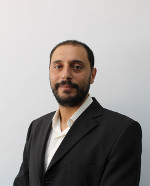 Dr. Marios Sophocleous, an esteemed researcher and expert in Agrifood Electronics and sensor technology, holds a PhD in Engineering with a focus on Thick Film Underground Sensors, complemented by a Master of Engineering in Mechanical Engineering (Mechatronics) from the University of Southampton, UK. His academic journey commenced with roles as a Research Scholar and Postdoctoral Research Fellow at the University of Cyprus, where he concentrated on soil quality monitoring technologies for the Agrifood sector. Currently, he assumes the position of Senior Project Manager and Head of Electronics & Beyond 5G Testbed at eBOS Technologies Ltd, Cyprus. In this capacity, he supervises the progress of over 10 EU projects, manages hardware acquisitions, and leads both the Electronics team and the B5G testbed, actively contributing to novel EU proposals. Additionally, Dr. Sophocleous enriches his research endeavors as a visiting researcher at Tel Aviv University, engaging in collaborative efforts focused on plant monitoring technologies. Dr. Sophocleous’s commitment to advancing Agrifood Electronics and sensor technology resonates through his prolific scientific contributions. He has authored numerous publications, including papers on sensor technology and precision agriculture, featured in esteemed journals like IEEE Sensors Journal and Biosensors & Bioelectronics. His influence extends to the IEEE Transactions on AgriFood Electronics Journal being a founding member, member of the steering committee and an Associated Editor and the IEEE Conference on AgriFood Electronics being a member of the Organizing Committee in 2023 and a General Co-Chair in 2024, where he actively shapes the technological landscape of agriculture and food production. Furthermore, he has edited books, penned book chapters, and authored magazine articles on subjects such as IoT and Thick-Film Technology for agriculture. His exceptional contributions have garnered recognition, including the Fulbright Schuman Award and finalist status for the Cyprus Young Scientist Award.
Dr. Marios Sophocleous, an esteemed researcher and expert in Agrifood Electronics and sensor technology, holds a PhD in Engineering with a focus on Thick Film Underground Sensors, complemented by a Master of Engineering in Mechanical Engineering (Mechatronics) from the University of Southampton, UK. His academic journey commenced with roles as a Research Scholar and Postdoctoral Research Fellow at the University of Cyprus, where he concentrated on soil quality monitoring technologies for the Agrifood sector. Currently, he assumes the position of Senior Project Manager and Head of Electronics & Beyond 5G Testbed at eBOS Technologies Ltd, Cyprus. In this capacity, he supervises the progress of over 10 EU projects, manages hardware acquisitions, and leads both the Electronics team and the B5G testbed, actively contributing to novel EU proposals. Additionally, Dr. Sophocleous enriches his research endeavors as a visiting researcher at Tel Aviv University, engaging in collaborative efforts focused on plant monitoring technologies. Dr. Sophocleous’s commitment to advancing Agrifood Electronics and sensor technology resonates through his prolific scientific contributions. He has authored numerous publications, including papers on sensor technology and precision agriculture, featured in esteemed journals like IEEE Sensors Journal and Biosensors & Bioelectronics. His influence extends to the IEEE Transactions on AgriFood Electronics Journal being a founding member, member of the steering committee and an Associated Editor and the IEEE Conference on AgriFood Electronics being a member of the Organizing Committee in 2023 and a General Co-Chair in 2024, where he actively shapes the technological landscape of agriculture and food production. Furthermore, he has edited books, penned book chapters, and authored magazine articles on subjects such as IoT and Thick-Film Technology for agriculture. His exceptional contributions have garnered recognition, including the Fulbright Schuman Award and finalist status for the Cyprus Young Scientist Award.
Talk Title: In-situ Soil Quality Monitoring Systems
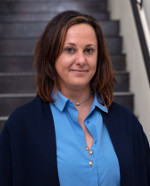 Luisa Petti received her M.Sc. in Electronic Engineering from Politecnico di Milano (Italy) in 2011. She obtained her Ph.D. in Electrical Engineering from ETH Zurich (Switzerland) in 2016 with a thesis entitled “Metal oxide semiconductor thin-film transistors for flexible electronics”, for which she won the ETH medal. After a short post-doc at ETH Zurich, she joined first Cambridge Display Technology Ltd in October 2016 and then FlexEnable Ltd in December 2017 in Cambridge, UK as a Scientist. In 2018 she joined the Free University of Bozen-Bolzano, where she is Associate Professor in Electronics since March 2021. Luisa’s current research includes the design, fabrication and characterization of flexible and printable sensors, energy harvesters, and thin-film devices and circuits, with a focus on sustainable and low-cost materials and manufacturing processes. Luisa serves as member of the IEEE-EDS board of governors, general co-chair of the IEEE International Flexible Electronics Technology Conference 2024, Associate Editor-in-Chief of IEEE Journal on Flexible Electronics and as Associate Editor of IEEE Transactions on Agrifood Electronics.
Luisa Petti received her M.Sc. in Electronic Engineering from Politecnico di Milano (Italy) in 2011. She obtained her Ph.D. in Electrical Engineering from ETH Zurich (Switzerland) in 2016 with a thesis entitled “Metal oxide semiconductor thin-film transistors for flexible electronics”, for which she won the ETH medal. After a short post-doc at ETH Zurich, she joined first Cambridge Display Technology Ltd in October 2016 and then FlexEnable Ltd in December 2017 in Cambridge, UK as a Scientist. In 2018 she joined the Free University of Bozen-Bolzano, where she is Associate Professor in Electronics since March 2021. Luisa’s current research includes the design, fabrication and characterization of flexible and printable sensors, energy harvesters, and thin-film devices and circuits, with a focus on sustainable and low-cost materials and manufacturing processes. Luisa serves as member of the IEEE-EDS board of governors, general co-chair of the IEEE International Flexible Electronics Technology Conference 2024, Associate Editor-in-Chief of IEEE Journal on Flexible Electronics and as Associate Editor of IEEE Transactions on Agrifood Electronics.
Talk Title: Beyond Conventional Electronics: Smart Sensing for a Sustainable Future
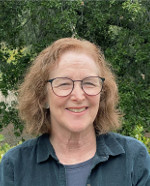 Ronnie Siegel received a B.A from Colgate University and an M.LA. from the University of Pennsylvania. She founded the firm Swire Siegel Landscape Architects in 1984, and has promoted sustainability with the use of native plants, conservation of water, and storm water recharge in her work in Southern California for 40 years. Most of her projects also focused on the design of nature-based play and learning environments for children in urban areas. She has promoted the benefits of open space design for children and was a guest lecturer for the World Forum on Nature Education in Nebraska and for similar conferences around the world. In addition, Ronnie created a Global Interactive Art Project called Carry the EARTH, which inspired action and collected environmental action stories from around the world from 2018-2023. She has written and illustrated an award winning fictional children’s book DISPLACED: A Story About Climate Change and How Displaced Animals Ring the Alarm.
Ronnie Siegel received a B.A from Colgate University and an M.LA. from the University of Pennsylvania. She founded the firm Swire Siegel Landscape Architects in 1984, and has promoted sustainability with the use of native plants, conservation of water, and storm water recharge in her work in Southern California for 40 years. Most of her projects also focused on the design of nature-based play and learning environments for children in urban areas. She has promoted the benefits of open space design for children and was a guest lecturer for the World Forum on Nature Education in Nebraska and for similar conferences around the world. In addition, Ronnie created a Global Interactive Art Project called Carry the EARTH, which inspired action and collected environmental action stories from around the world from 2018-2023. She has written and illustrated an award winning fictional children’s book DISPLACED: A Story About Climate Change and How Displaced Animals Ring the Alarm.
Ronnie is a member of the Biodiversity and Climate Action Committee of the ASLA working to help prepare resources for its members to facilitate action.
She is currently working with the US Green Building Council California to facilitate a collaboration with the ASLA on climate action by helping to organize a full day of nature-based solutions sessions at their annual conference in 2025.
Talk Title: Cross-disciplinary Collaboration Using Nature-based Solutions to Address Climate Change
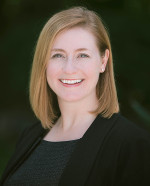 Sydney Chamberlin is the Project Director for Climate & Nature-based Solutions at The Nature Conservancy (TNC) in California. Her work focuses on exploring policy and economic pathways to expand and accelerate the use of nature-based climate solutions, with an emphasis on Deltaic wetland restoration. She has also worked to explore insurance-based strategies to scale nature-based solutions in California. Prior to her role at TNC, Sydney worked as a postdoctoral scholar in physics at Penn State University. She transitioned to the climate sector after completing a year of public service as a Science & Technology Policy Fellow for California’s Senate Committee on Natural Resources & Water. Sydney holds BS degrees in physics and mathematics from Utah State University, a PhD in physics from the University of Wisconsin-Milwaukee, and a Project Management Certificate from Cornell University.
Sydney Chamberlin is the Project Director for Climate & Nature-based Solutions at The Nature Conservancy (TNC) in California. Her work focuses on exploring policy and economic pathways to expand and accelerate the use of nature-based climate solutions, with an emphasis on Deltaic wetland restoration. She has also worked to explore insurance-based strategies to scale nature-based solutions in California. Prior to her role at TNC, Sydney worked as a postdoctoral scholar in physics at Penn State University. She transitioned to the climate sector after completing a year of public service as a Science & Technology Policy Fellow for California’s Senate Committee on Natural Resources & Water. Sydney holds BS degrees in physics and mathematics from Utah State University, a PhD in physics from the University of Wisconsin-Milwaukee, and a Project Management Certificate from Cornell University.
Talk Title: Cross-disciplinary Collaboration Using Nature-based Solutions to Address Climate Change
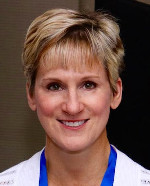 Karen McCabe is a Senior Director of Technology Policy at the IEEE Standards Association (IEEE SA), where she leads IEEE SA’s Technology Policy Center and oversees government relations and IEEE SA’s public policy initiatives, including efforts to build and connect communities working in the standardization and technology policy ecosystem with the aim of impactful outcomes to help advance technology for the benefit of society. Karen works at the nexus of mission-driven organizations, industry, NGOs, and government bodies to raise awareness, educate, and build capacity among stakeholders in the technology sphere. She is engaged in technology policy initiatives in sustainability, ethical AI, digital transition, and global standards in trade and policy. She leads the organization’s engagement with the UN and other international and intergovernmental bodies, with a focus on engagement of the technical community at the intersection of technology, standards, regulation, and policy.
Karen McCabe is a Senior Director of Technology Policy at the IEEE Standards Association (IEEE SA), where she leads IEEE SA’s Technology Policy Center and oversees government relations and IEEE SA’s public policy initiatives, including efforts to build and connect communities working in the standardization and technology policy ecosystem with the aim of impactful outcomes to help advance technology for the benefit of society. Karen works at the nexus of mission-driven organizations, industry, NGOs, and government bodies to raise awareness, educate, and build capacity among stakeholders in the technology sphere. She is engaged in technology policy initiatives in sustainability, ethical AI, digital transition, and global standards in trade and policy. She leads the organization’s engagement with the UN and other international and intergovernmental bodies, with a focus on engagement of the technical community at the intersection of technology, standards, regulation, and policy.
Moderator: IEEE@COP 2024 Panel
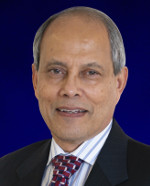 Professor Saifur Rahman is the founding director of the Advanced Research Institute at Virginia Tech, USA where he is the Joseph R. Loring professor of electrical and computer engineering. He also directs the Center for Energy and the Global Environment. He is a Life Fellow of the IEEE and an IEEE Millennium Medal winner. He was the IEEE President and CEO in 2023, and was the president of the IEEE Power and Energy Society (PES) for 2018 and 2019. He is the founding editor-in-chief of the IEEE Electrification Magazine and the IEEE Transactions on Sustainable Energy. He has published over 160 journal papers and has made over eight hundred conference and invited presentations. He was the chair of the US National Science Foundation Advisory Committee on International Science and Engineering. He has a PhD in electrical engineering from Virginia Tech.
Professor Saifur Rahman is the founding director of the Advanced Research Institute at Virginia Tech, USA where he is the Joseph R. Loring professor of electrical and computer engineering. He also directs the Center for Energy and the Global Environment. He is a Life Fellow of the IEEE and an IEEE Millennium Medal winner. He was the IEEE President and CEO in 2023, and was the president of the IEEE Power and Energy Society (PES) for 2018 and 2019. He is the founding editor-in-chief of the IEEE Electrification Magazine and the IEEE Transactions on Sustainable Energy. He has published over 160 journal papers and has made over eight hundred conference and invited presentations. He was the chair of the US National Science Foundation Advisory Committee on International Science and Engineering. He has a PhD in electrical engineering from Virginia Tech.
Panelist: IEEE@COP 2024 Panel
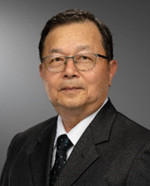 Professor Wei-Jen Lee has been involved in the revision of IEEE Std. 141, 339, 551, 739, and 1584, and the development of 1584.1, 1584.2, 3002.8, and 3002.9. He was the project manager of IEEE/NFPA Arc Flash Phenomena Collaborative Research Project (2008-2022). He has been involved in research on Utility Deregulation, Renewable Energy, Arc Flash Hazards and Electrical Safety, Smart Grid, AI for Load, Price, and Wind Capacity Forecasting, Power Quality, Demand Response, Power Systems Analysis, Short Circuit Analysis and Relay Coordination, Distributed Energy Resources, Energy Storage System, and PEV Charging Infrastructure Design.
Professor Wei-Jen Lee has been involved in the revision of IEEE Std. 141, 339, 551, 739, and 1584, and the development of 1584.1, 1584.2, 3002.8, and 3002.9. He was the project manager of IEEE/NFPA Arc Flash Phenomena Collaborative Research Project (2008-2022). He has been involved in research on Utility Deregulation, Renewable Energy, Arc Flash Hazards and Electrical Safety, Smart Grid, AI for Load, Price, and Wind Capacity Forecasting, Power Quality, Demand Response, Power Systems Analysis, Short Circuit Analysis and Relay Coordination, Distributed Energy Resources, Energy Storage System, and PEV Charging Infrastructure Design.
He has served as the primary investigator (PI) or Co-PI of over one hundred and ten funded research projects. He has published more than two hundred and twenty journal papers and three hundred and ten conference proceedings. He has provided on-site training courses for power engineers in Panama, China, Taiwan, Korea, Saudi Arabia, Thailand, and Singapore. He has refereed numerous technical papers for IEEE, IET, and other professional organizations.
Prof. Lee is a Fellow of IEEE, Fellow of Asia-Pacific Artificial Intelligence Association, Fellow of International Artificial Intelligence Industry Alliance, member of National Academy of Inventors, and registered Professional Engineer in the State of Texas.
Panelist: IEEE@COP 2024 Panel
Ralph. W. Emerson once said, “To leave the world a bit better, whether by a healthy child, a garden patch, or a redeemed social condition; to know that even one life has breathed easier because you have lived — that is to have succeeded.” I strive to live up to these words everyday, to leave the world a bit better than I found it. It is through this motivation that I advocate for environmental and climate justice and develop technical & non technical solutions to environmental challenges.
Panelist: IEEE@COP 2024 Panel
 Teppo Rantanen, Director for competitiveness and innovation at the City of Tampere, is responsible for several city-wide development programs, with a particular focus on smart city themes [such as the Data-Driven City for Citizens initiative], that shape the strategic economic policy of the city. He leads Tampere through collaboration in extensive international networks toward a metaverse city with a human-centric perspective. From 2002 to 2014 Teppo served as Deloitte Finland’s Chief Executive Officer and from 2014 to 2016 in London as a member of Global Technology, Media and Telecommunications Leadership Team. He is currently sitting on the board of Business Finland which is helping Finnish companies to grow and succeed globally.
Teppo Rantanen, Director for competitiveness and innovation at the City of Tampere, is responsible for several city-wide development programs, with a particular focus on smart city themes [such as the Data-Driven City for Citizens initiative], that shape the strategic economic policy of the city. He leads Tampere through collaboration in extensive international networks toward a metaverse city with a human-centric perspective. From 2002 to 2014 Teppo served as Deloitte Finland’s Chief Executive Officer and from 2014 to 2016 in London as a member of Global Technology, Media and Telecommunications Leadership Team. He is currently sitting on the board of Business Finland which is helping Finnish companies to grow and succeed globally.
Teppo and his team from the City of Tampere were receiving the World Smart City Award in the Enabling Technologies category at Smart City Expo World Congress taking place in Barcelona in 2023.
Talk Title: Building Sustainable Citiverse with AI, Immersive Tech, and Data
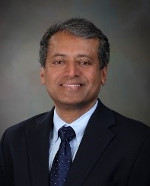 Dr. Babu Chalamala is a Senior Scientist at Sandia National Laboratories. Earlier, he was Head of the Energy Storage Technology and Systems Department and Program Manager for Grid Energy Storage at the lab. Prior to joining Sandia in 2015, he was a Corporate Fellow at MEMC Electronic Materials/SunEdison where he led R&D and product development in energy storage technology. Earlier, as a research staff member at Motorola and Texas Instruments, he made contributions to vacuum microelectronics and flat panel display technologies. He also had founding roles in two startup companies. He is a Fellow of the IEEE, AAAS, and the National Academy of Inventors and a Distinguished Lecturer of the IEEE Power and Energy Society. He was elected to the US National Academy of Engineering in 2024.
Dr. Babu Chalamala is a Senior Scientist at Sandia National Laboratories. Earlier, he was Head of the Energy Storage Technology and Systems Department and Program Manager for Grid Energy Storage at the lab. Prior to joining Sandia in 2015, he was a Corporate Fellow at MEMC Electronic Materials/SunEdison where he led R&D and product development in energy storage technology. Earlier, as a research staff member at Motorola and Texas Instruments, he made contributions to vacuum microelectronics and flat panel display technologies. He also had founding roles in two startup companies. He is a Fellow of the IEEE, AAAS, and the National Academy of Inventors and a Distinguished Lecturer of the IEEE Power and Energy Society. He was elected to the US National Academy of Engineering in 2024.
Talk Title: Energy Storage for Grid Modernization and Deeper Decarbonization
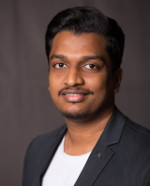 Dr. Ashiq Ahamed, an expert in environmental sustainability assessments, is the Sustainability Lead at Pragmatic Semiconductor Ltd., UK. He has a Ph.D. from ÅAU, Finland and master’s degree from NTU, Singapore. He has worked with industry and university partners on a diverse array of life cycle analyses involving systems with significant complexities and challenges, including high tech niche areas. He possesses robust knowledge in providing science based sustainable solutions. His credentials include >20 peer reviewed scientific research publications and >1600 citations. His expertise involving assessment of a variety of technological areas is a key differentiator in his field.
Dr. Ashiq Ahamed, an expert in environmental sustainability assessments, is the Sustainability Lead at Pragmatic Semiconductor Ltd., UK. He has a Ph.D. from ÅAU, Finland and master’s degree from NTU, Singapore. He has worked with industry and university partners on a diverse array of life cycle analyses involving systems with significant complexities and challenges, including high tech niche areas. He possesses robust knowledge in providing science based sustainable solutions. His credentials include >20 peer reviewed scientific research publications and >1600 citations. His expertise involving assessment of a variety of technological areas is a key differentiator in his field.
Talk Title: FlexICs – A Low Carbon Tech Enabling a Low Carbon Economy
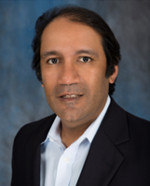 Ashwin Bharadwaj is the Product Technology Leader for Chelants in Dow Industrial Solutions(DIS) Product R&D group. He leads DIS’s Chelants technology platform responsible for project execution and strategy. Ashwin has experience across multiple markets which DIS including process and product knowledge in lubricants, pulp and paper, and pharma. In addition, he is a key contributor to advancing digital platforms across Dow and utilization of those tool towards innovation. He is champion to further develop sustainable innovation and passionate about process implementation towards those goals. Ashwin joined Dow in 2005. Ashwin earned his Ph.D. in chemistry from University of Florida in organic chemistry and completed postdoctoral research at Northwestern University.
Ashwin Bharadwaj is the Product Technology Leader for Chelants in Dow Industrial Solutions(DIS) Product R&D group. He leads DIS’s Chelants technology platform responsible for project execution and strategy. Ashwin has experience across multiple markets which DIS including process and product knowledge in lubricants, pulp and paper, and pharma. In addition, he is a key contributor to advancing digital platforms across Dow and utilization of those tool towards innovation. He is champion to further develop sustainable innovation and passionate about process implementation towards those goals. Ashwin joined Dow in 2005. Ashwin earned his Ph.D. in chemistry from University of Florida in organic chemistry and completed postdoctoral research at Northwestern University.
Talk Title: Developing Safer Materials Using Dow’s Smart Search, Powered by CAS
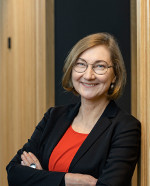 Dr. Maria Smolander is a research team leader of the “Flexible sensors and devices” research team at VTT, Technical Research Centre of Finland. Her expertise areas include e.g. sustainable solutions in printed and hybrid electronics and photonics, development and testing of printed indicator and sensor concepts as well as printable power sources. Maria Smolander gained her PhD from the Helsinki University of Technology in 1995 and she has been involved as project manager or WP leader in several EU and national projects dealing with functional solutions and power sources for different applications. Recently she has e.g. lead VTT funded activity on sustainable printed and hybrid electronics and acted as the member of the Executive Board and Work Package leader of Flexible Electronics in Graphene Flagship, the biggest research initiative in Europe.
Dr. Maria Smolander is a research team leader of the “Flexible sensors and devices” research team at VTT, Technical Research Centre of Finland. Her expertise areas include e.g. sustainable solutions in printed and hybrid electronics and photonics, development and testing of printed indicator and sensor concepts as well as printable power sources. Maria Smolander gained her PhD from the Helsinki University of Technology in 1995 and she has been involved as project manager or WP leader in several EU and national projects dealing with functional solutions and power sources for different applications. Recently she has e.g. lead VTT funded activity on sustainable printed and hybrid electronics and acted as the member of the Executive Board and Work Package leader of Flexible Electronics in Graphene Flagship, the biggest research initiative in Europe.
Talk Title: Sustainability of Flexible Electronics
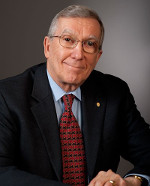 Nicholas Ashford is Professor of Technology & Policy and Director of the Technology & Law Program at the Massachusetts Institute of Technology, where he teaches courses in Environmental Law, Policy, and Economics; Law, Technology, and Public Policy; and Technology, Globalization and Sustainable Development. Dr. Ashford is a Faculty Associate of the Institute for Data, Systems, and Society in the School of Engineering; the Institute for Work and Employment Research in the Sloan School of Management; and the Environmental Policy Group in the Urban Studies Department. He holds both a Ph.D. in Chemistry and a Law Degree from the University of Chicago, where he also received graduate education in Economics. Dr. Ashford is also a visiting scientist at the Harvard School of Public Health and has taught intensive courses in Sustainable Development, and European & International Environmental Law at Harvard University, Cambridge University, UK and at the Cyprus University of Technology. Dr. Ashford is the co-author of two textbooks/readers used in his classes: Technology, Globalization, and Sustainable Development: Transforming the Industrial State (2018, revised edition, Routledge/Earthscan Press; see youtu.be/u-OdFBARXHg and Environmental Law, Policy and Economics: Reclaiming the Environmental Agenda (2008, MIT Press; see mitpress.mit.edu/9780262012386). He also authored a major policy work for the Ford Foundation, Crisis in the Workplace: Occupational Disease and Injury, (1976, MIT Press). He co-authored four additional books: Public Participation in Contaminated Communities, (2001, ashford.mit.edu/public-participation-contaminated-communities; Chemical Exposures: Low Levels and High Stakes (second edition 1998, John Wiley Press; Chemical Exposures: Low Levels and High Stakes, N.A. Ashford and C.S. Miller, Second Edition, John Wiley Press, 1998, 440 pages. Available for free at tiltresearch.org/health-care-providers/publications/ (click to obtain pdf version); Law, Technology, Law and the Working Environment (second edition 1996, Island Press) and Monitoring the Worker for Exposure and Disease (1990, John Hopkins University Press). He has published several hundred articles in peer-reviewed journals and law reviews. Dr. Ashford was a public member and chairman of the National Advisory Committee on Occupational Safety & Health, served on the EPA Science Advisory Board, and was chairman of the Committee on Technology Innovation & Economics of the EPA National Advisory Council for Environmental Policy and Technology. Dr. Ashford is a Fellow of the American Association for the Advancement of Science and former chair of its Section on Societal Impacts of Science and Engineering. He served as an advisor to the United Nations Environment Programme and is also a member of the editorial board of the Journal of Cleaner Production, the Journal of Environmental Technology and Management, the Journal of Environmental Policy & Governance, and Environmental Innovation & Societal Transitions, He served as co-chair of the US-Greece Council for the Initiative on Technology Cooperation with the Balkans. Dr. Ashford’s research interests include sustainability, trade and environment; regulatory law and economics; the design of government policies for encouraging both technological innovation, and improvements in health, safety and environmental quality; pollution prevention and cleaner/inherently safer production; labor’s participation in technological change; and environmental justice. He has developed methodologies for decision-making in the regulation of chemicals and has extensively investigated the effects of regulation on technological innovation in the chemical, pharmaceutical, and automobile industries. Dr. Ashford’s research activities include work for the United Nations Environment Programme, the OECD, and the European Union, as well as for U.S. regulatory agencies and the U.S. Office of Technology Assessment. ashford.mit.edu
Nicholas Ashford is Professor of Technology & Policy and Director of the Technology & Law Program at the Massachusetts Institute of Technology, where he teaches courses in Environmental Law, Policy, and Economics; Law, Technology, and Public Policy; and Technology, Globalization and Sustainable Development. Dr. Ashford is a Faculty Associate of the Institute for Data, Systems, and Society in the School of Engineering; the Institute for Work and Employment Research in the Sloan School of Management; and the Environmental Policy Group in the Urban Studies Department. He holds both a Ph.D. in Chemistry and a Law Degree from the University of Chicago, where he also received graduate education in Economics. Dr. Ashford is also a visiting scientist at the Harvard School of Public Health and has taught intensive courses in Sustainable Development, and European & International Environmental Law at Harvard University, Cambridge University, UK and at the Cyprus University of Technology. Dr. Ashford is the co-author of two textbooks/readers used in his classes: Technology, Globalization, and Sustainable Development: Transforming the Industrial State (2018, revised edition, Routledge/Earthscan Press; see youtu.be/u-OdFBARXHg and Environmental Law, Policy and Economics: Reclaiming the Environmental Agenda (2008, MIT Press; see mitpress.mit.edu/9780262012386). He also authored a major policy work for the Ford Foundation, Crisis in the Workplace: Occupational Disease and Injury, (1976, MIT Press). He co-authored four additional books: Public Participation in Contaminated Communities, (2001, ashford.mit.edu/public-participation-contaminated-communities; Chemical Exposures: Low Levels and High Stakes (second edition 1998, John Wiley Press; Chemical Exposures: Low Levels and High Stakes, N.A. Ashford and C.S. Miller, Second Edition, John Wiley Press, 1998, 440 pages. Available for free at tiltresearch.org/health-care-providers/publications/ (click to obtain pdf version); Law, Technology, Law and the Working Environment (second edition 1996, Island Press) and Monitoring the Worker for Exposure and Disease (1990, John Hopkins University Press). He has published several hundred articles in peer-reviewed journals and law reviews. Dr. Ashford was a public member and chairman of the National Advisory Committee on Occupational Safety & Health, served on the EPA Science Advisory Board, and was chairman of the Committee on Technology Innovation & Economics of the EPA National Advisory Council for Environmental Policy and Technology. Dr. Ashford is a Fellow of the American Association for the Advancement of Science and former chair of its Section on Societal Impacts of Science and Engineering. He served as an advisor to the United Nations Environment Programme and is also a member of the editorial board of the Journal of Cleaner Production, the Journal of Environmental Technology and Management, the Journal of Environmental Policy & Governance, and Environmental Innovation & Societal Transitions, He served as co-chair of the US-Greece Council for the Initiative on Technology Cooperation with the Balkans. Dr. Ashford’s research interests include sustainability, trade and environment; regulatory law and economics; the design of government policies for encouraging both technological innovation, and improvements in health, safety and environmental quality; pollution prevention and cleaner/inherently safer production; labor’s participation in technological change; and environmental justice. He has developed methodologies for decision-making in the regulation of chemicals and has extensively investigated the effects of regulation on technological innovation in the chemical, pharmaceutical, and automobile industries. Dr. Ashford’s research activities include work for the United Nations Environment Programme, the OECD, and the European Union, as well as for U.S. regulatory agencies and the U.S. Office of Technology Assessment. ashford.mit.edu
Talk Title: Climate Change Technologies: Challenges and Opportunities
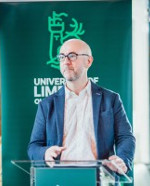 Professor Colin Fitzpatrick is the Head of the Department of Electronic & Computer Engineering at the University of Limerick. He is a leading expert in the fields of sustainability, circular economy, and electronic waste (e-waste) management. His research focuses on advancing the environmental, economic, and social sustainability of technology, with over 60 peer-reviewed journal articles and numerous international conference papers. Professor Fitzpatrick has been awarded over €5 million in research funding and is a frequent collaborator with national and EU-level policymakers. He has held visiting research positions at MIT and Fraunhofer IZM in Berlin. His contributions to sustainability in academia have earned him recognition, including UL’s award for excellence in community service. As a thought leader on the circular economy, Professor Fitzpatrick regularly shares his expertise at international conferences, addressing pressing global challenges related to resource management and electronic waste.
Professor Colin Fitzpatrick is the Head of the Department of Electronic & Computer Engineering at the University of Limerick. He is a leading expert in the fields of sustainability, circular economy, and electronic waste (e-waste) management. His research focuses on advancing the environmental, economic, and social sustainability of technology, with over 60 peer-reviewed journal articles and numerous international conference papers. Professor Fitzpatrick has been awarded over €5 million in research funding and is a frequent collaborator with national and EU-level policymakers. He has held visiting research positions at MIT and Fraunhofer IZM in Berlin. His contributions to sustainability in academia have earned him recognition, including UL’s award for excellence in community service. As a thought leader on the circular economy, Professor Fitzpatrick regularly shares his expertise at international conferences, addressing pressing global challenges related to resource management and electronic waste.
Talk Title: Sustainable Electronics Will Require an Integration of Both Business Models and Technology Enablers
